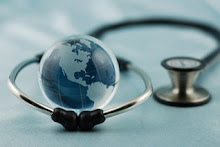There are many global destinations that can provide healthcare, besides asian locations. We can assist your patients in sourcing care that is medically appropriate, culturally relevant, geographically important, or for purely interest in a location for medical care. All that can be done at an attractive value proposition.
A potentially important consideration in the analysis is the delay for a client to return to an active productive life. A 6 t0 12 hour flight and recovery time next week is potentially more attractive, than a several month wait for a procedure appointment slot in a hospital bed, OR, day surgery or conscious sedation suite etc.
There are some important obstacles for some clients that will prevent their opting for this type of care plan. We can incentivize clients to move past their internal biases and concerns. We need to help them move from a place of hesitancy and uncertainty about medical travel to a zone of comfort and excitement. We must lead that campaign. That is where a physician led organization has a role. I understand patients, their needs and how to communicate to them.
Our perspective looks at the price issue from a different angle. It is and always will be, a avalue proposition. How much does a potential patient value their time hampered by a quality of life condition that can be corrected in an expeditious manner? What value does a patient place on waiting to return to an active, productive and involved life?
Price cutting implies (in patient's minds) quality shortcuts. While the assumption may not be valid, it is likely at the forefront of any healthcare consumers mindset when we discuss price cuts.
The size of the destination facility can be less important than the capability, skill and expertise of the providers. Many of the existing facilities have designated areas in the hospital for medical travels to cater to their needs. Some are specializing in specific types of care.
We both know that complete solutions are never simple. There are important initiatives that the industry is currently building to implement in order to strengthen confidence for consumers of non-acute healthcare.
This industry can not solve our problems entirely. Rather it will be a important contributor to the solutions of the the US healthcare dilemma we face now and going forward for several years.
We, as an industry, are working to ensure that US standards are incorporated into the processes and practices abroad. JCI, an international arm of JCAHO, inspects facilities abroad. They certify that these standards are in place. I believe this certification is essential to ensure confidence and growth.
In my opinion, facilitators should play a role beyond booking flights etc. They should ensure seamless travel, privacy, and bidirectional transfer of medical information. This promotes the conditions for the best possible outcome for all involved.
There will be an important role for expert physicians and teams that can ensure the care and process are at a level acceptable to US payers, facilities and patient needs.
I would enjoy speaking to you and your group about this subject.
Jim McCormick, III M.D.
General Manager and President
Premiere Medical Travel
818 / 917- 6189
http://premiere-medical-travel-blogspot.com/


No comments:
Post a Comment